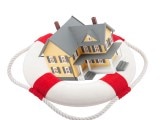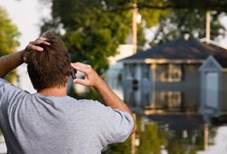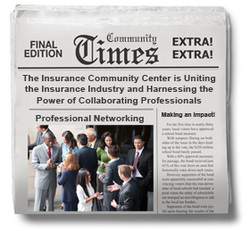|
“Act of God” is a commonly used insurance term, but you may not know exactly what it means. When it comes to weather and other unpreventable events, it’s important to understand acts of God so you can protect your property by making sure you have the right insurance coverage.
Keep reading to learn what an act of God is, the types of events that qualify and how it all factors into home and auto insurance policies. What does “act of God” mean? Simply put, an act of God (in property and car insurance policy terms) refers to events, such as extreme weather, that are out of your control. If it’s something you can’t prevent, it’s likely an act of God. What types of events qualify as an act of God? Examples of acts of God include windstorms, lightning strikes, hail storms, wildfires, hurricanes, tornadoes, floods and earthquakes. However, not every act of God is included in a standard insurance policy. You may need additional coverage. Does auto insurance cover acts of God? Car insurance will cover acts of God if you sign up for comprehensive coverage. This type of auto insurance covers natural disasters as well as other types of damage not caused by a collision. For example, if your car is vandalized or an animal runs out in front of you, comprehensive coverage can help you pay for repairs or a total loss. What about home insurance? A standard homeowners policy usually covers some acts of God. Flooding and earthquakes are two common exceptions. If you live in a flood zone or an area prone to earthquakes, you’ll need separate coverage for those natural disasters. Is an act of God the same as a force majeure? The two terms are similar; however, the term force majeure is more commonly used in business and construction contracts. It refers to unforeseeable circumstances that prevent a contract from being fulfilled. Have questions about your insurance coverage for acts of God? Just reach out, and we’ll be happy to help.
0 Comments
Are you a home insurance expert or does the industry’s jargon leave you scratching your head?
Unfortunately, if you don’t understand everything that’s in your homeowners insurance policy, you could be vulnerable to expensive mistakes or unpleasant surprises later on. We’re here to help. Keep reading for our list of 10 important, uncommon and often misunderstood home insurance terms to know about. 1. Adjuster: The claims adjuster investigates your claim, collects evidence and determines how much to pay for the property damage or total loss. 2. Declarations Page: This is the front page of your homeowner’s insurance policy. A declarations page summarizes basic information about your policy such as the policyholder, the home covered, and your coverage and premium amounts. 3. Indemnification: The compensation for your homeowners insurance claim. 4. Loss of Use: Coverage that pays additional expenses when a policyholder has to move out of their residence while repairs are made as a result of damage caused by a covered loss. 5. Negligence: A failure to take reasonable care or otherwise prevent damage to your home and property. For example, you neglect to shovel the snow from your sidewalk and a neighbor injures themselves. Or, you don’t take a dead tree down and it falls on your property or your neighbor’s. 6. Occurrence: A single event or series of exposures that cause an injury or damage to your property. Examples include break-ins, fires, burst pipes and more. 7. Personal Umbrella Policy: An optional, additional liability coverage for your personal assets in the event of an accident on your property that exceeds the limits of your current homeowners coverage. 8. Replacement Cost: The actual cost of replacing your home and property in the event of damage or complete destruction. Replacement cost is different from the current market value of your home. 9. Scheduled Personal Property: If you have high-value personal property such as jewelry, artwork, antiques and more, this type of coverage can be added to your homeowners policy. 10. Subrogation: When someone else’s negligence leads to damage to your property (such as a neighbor’s tree falling on your roof), you can ask your insurer to settle the claim for you. Subrogation is the process of seeking payment recovery for you. Have questions about your homeowners insurance? Just reach out, and we’ll be happy to help. If your home is destroyed by a fire or other catastrophe, will you be able to rebuild it?
Learn what a reconstruction cost estimate is and how to calculate it for your home. What is a reconstruction cost estimate? Your reconstruction cost estimate (also known as your dwelling coverage limit) is part of your homeowner’s insurance policy. It refers to the cost of rebuilding your home and any attached structures as they were before a total loss. The most important thing to know about a reconstruction cost estimate is that it’s not the same as your house’s current market value. How is it calculated? The simplest way to determine your home’s reconstruction cost estimate is to look up the average per-foot rebuilding costs (labor and materials) where you live. Multiply that per-foot cost by the square footage of your home and any attached structures. Reconstruction Cost Estimate vs. Home Appraisal A home appraisal looks at the real estate market in your area and comparable properties to determine a sale price for your house based on its location, condition and other relevant factors. In contrast, a reconstruction cost estimate is solely about the price of labor and materials. If you had to build your home from the ground up, to resemble its current condition, what would it cost? It’s important to choose the right amount of dwelling coverage, or you could be left with out-of-pocket costs for the difference between your coverage limit and the actual reconstruction cost. What’s the difference between a reconstruction cost and a replacement cost? The replacement cost for your home refers only to the price of labor and materials. Reconstruction cost accounts for additional costs related to rebuilding such as demolition, debris removal, and more. Have questions about your dwelling coverage limit? Just reach out, and we’ll be happy to help. Does your homeowner’s insurance protect against all the possible threats to your property? If you’re worried about something that isn’t covered, you may be able to add it on. An insurance add-on, also known as a rider or endorsement, is an optional addition to your policy.
It’s a good idea to review your current policy to get clear on the types of damage you’re insured against. Learn about a few popular insurance add-ons to see if any of them make sense for you: 1. Sewer Backup Having your sewer back up into your sink, toilet or drain is no fun. In addition to the ickiness factor, the repair bill can be expensive. You need a plumber to unblock the sewer, and you’ll probably have a mess to clean up. Adding a sewer backup rider to your homeowner’s coverage will cover the costs associated with repairing the problem, replacing damaged belongings and removing wastewater from your home. 2. Home-Based Business Do you run a small business out of your personal residence? Instead of purchasing a commercial insurance policy, you can add a home-based business rider to your policy. This will protect the personal belongings in your office space and cover any medical bills for business visitors who are injured on your property. 3. Swimming Pool When it comes to home pools, you should check your existing coverage to see if damage to the structure of your pool is covered. If guests injure themselves in or around your pool, it’s likely not covered by your standard homeowner’s policy. You’ll have to add injury coverage as a rider. 4. Earthquake As with hurricanes and floods, earthquakes are a type of natural disaster that require additional coverage. An earthquake rider will cover the costs of repairs and debris removal in the wake of an earthquake. In addition to your home, earthquake coverage protects other structures on your property such as a garage, shed, deck, etc. 5. Umbrella Coverage This is a type of personal liability insurance that protects you and your family from major claims and lawsuits. Umbrella coverage may extend to other homes you own, as well as your vehicles and any watercraft. Have questions about insurance add-ons? Just reach out, and we’ll be happy to help. |
better Insurance
|
-
HOME
- Send me a Home Insurance Quote >
- FLOOD Insurance, Massachusetts >
- Cape Cod Home Insurance
- Pay Your Home Insurance Bill Online
- Ordinance or Law Coverage
- How to Prevent a Claim on your Home Insurance Policy
- Videos - Cape Cod Real Estate Tips >
- Cape Cod Massachusetts Arbella Insurance Discounts
- Cape Cod Massachusetts Lloyds of London Home Insurance
- Safety Insurance Discounts for Cape Cod, Massachusetts
- MPIUA - MA Property Insurance Underwriting Association "Fair Plan"
- Cape Cod Massachusetts Home Protection Insurance
- Hurricane Preparedness >
-
AUTO
- Send me an Auto Insurance Quote for Cape Cod, Massachusetts
- BOAT Insurance >
- Cape Cod, MA Dept. of Motor Vehicles
- Cape Cod Massachusetts - Report an Auto Insurance Claim
- Auto Insurance Quote - CAR BUYING TIPS : Auto Insurance for Cape Cod, MA
- InControl Driver Training
- Car Insurance for Cape Cod Massachusetts - Arbella Insurance - Send me an Auto Quote >
- Plymouth Rock - Send me an Auto Quote >
- Encompass Insurance Discounts
- Safety Insurance - Send me an Auto Quote >
- Travelers Insurance Discounts
- Progressive Insurance - Send me an Auto Quote
- LIFE
- OFFICES
- ABOUT US
- Stay Home
- Home Insurance Explained
- Agent Login
- Privacy Policy
- Videos - Cape Cod Real Estate Investing, Taxes & Insurance
- Videos - Cape Cod Coastal Real Estate
- Português
Arthur D. Calfee Insurance Agency, Inc. is a friendly local insurance agency proudly offering Massachusetts, Cape Cod and the Islands. A-Excellent AM Best rating, A+ Excellent by the BBB
Using innovative thinking, cutting-edge tools and expert resources at national and local levels, we deliver the best possible outcome on every policy we manage. Need Home Insurance? Easy, Fast, & Secure Home Insurance. Get Free Quotes 100% Online Now! Available 24/7. Affordable Rates. Cover Your Biggest Investments. Get a homeowners insurance quote, find coverage options. We'll help you understand and customize the right home insurance coverage for you.
Home is where your heart is—along with a healthy chunk of your net worth. Get started today with a free homeowner's quote.
Compare home insurance quotes today and save on protection for your biggest investment. Build a Custom Policy & Make the Switch! Our local underwriting professionals focus exclusively on finding the best home insurance, homeowner's insurance, hazard insurance, investment property insurance, flood insurance, flood zone information, vacation home insurance, second home insurance, auto insurance, collector car insurance, business insurance, general liability insurance, property insurance, professional liability insurance, contractor's liability insurance, worker's comp insurance, key man insurance, whole life insurance, term life insurance, group or personal disability, & long-term care insurance policies to patrons in the following Cape Cod, Massachusetts towns, communities and villages: Barnstable, Bourne, Pocasset, Brewster, Buzzards Bay, Centerville, Chatham, Cotuit, Craigville, Dennis, East Dennis, Eastham, Falmouth, East Falmouth, Hatchville, West Falmouth, North Falmouth, Woods Hole, Harwich, Hyannis, Hyannisport, Martha's Vineyard, Nantucket, Marstons Mills, Mashpee, Orleans, Osterville, Provincetown, Sandwich, Sagamore, Sagamore Beach, Truro, Wellfleet, Yarmouth, and Yarmouthport. Real-Time Pricing. Insurance coverage: Wind Damage, Fire Loss, Water Damage. Protect your home and belongings. Low Rates For Your Best Options to Save Money On Great Coverage! Get a quote today. Home insurance helps protect your house and your family.
Using innovative thinking, cutting-edge tools and expert resources at national and local levels, we deliver the best possible outcome on every policy we manage. Need Home Insurance? Easy, Fast, & Secure Home Insurance. Get Free Quotes 100% Online Now! Available 24/7. Affordable Rates. Cover Your Biggest Investments. Get a homeowners insurance quote, find coverage options. We'll help you understand and customize the right home insurance coverage for you.
Home is where your heart is—along with a healthy chunk of your net worth. Get started today with a free homeowner's quote.
Compare home insurance quotes today and save on protection for your biggest investment. Build a Custom Policy & Make the Switch! Our local underwriting professionals focus exclusively on finding the best home insurance, homeowner's insurance, hazard insurance, investment property insurance, flood insurance, flood zone information, vacation home insurance, second home insurance, auto insurance, collector car insurance, business insurance, general liability insurance, property insurance, professional liability insurance, contractor's liability insurance, worker's comp insurance, key man insurance, whole life insurance, term life insurance, group or personal disability, & long-term care insurance policies to patrons in the following Cape Cod, Massachusetts towns, communities and villages: Barnstable, Bourne, Pocasset, Brewster, Buzzards Bay, Centerville, Chatham, Cotuit, Craigville, Dennis, East Dennis, Eastham, Falmouth, East Falmouth, Hatchville, West Falmouth, North Falmouth, Woods Hole, Harwich, Hyannis, Hyannisport, Martha's Vineyard, Nantucket, Marstons Mills, Mashpee, Orleans, Osterville, Provincetown, Sandwich, Sagamore, Sagamore Beach, Truro, Wellfleet, Yarmouth, and Yarmouthport. Real-Time Pricing. Insurance coverage: Wind Damage, Fire Loss, Water Damage. Protect your home and belongings. Low Rates For Your Best Options to Save Money On Great Coverage! Get a quote today. Home insurance helps protect your house and your family.
Testimonials & Endorsements for the Best Insurance Agent on Cape Cod, MA
PHONE: (800) 479-2601 CUSTOMER SUPPORT & SERVICE
Please note: The above is meant as general information to help you understand the different aspects of insurance. This information is not an insurance policy, does not refer to any specific insurance policy, and does not modify any provisions, limitations, or exclusions expressly stated in any insurance policy. Descriptions of all coverages and other features on this page are necessarily brief; in order to fully understand the coverages and other features of a specific insurance policy, we encourage you to read the applicable policy and/or speak to an insurance representative. Coverages and other features vary between insurers, vary by state, and are not available in all states. Whether an accident or other loss is covered is subject to the terms and conditions of the actual insurance policy or policies involved in the claim. References to average or typical premiums, amounts of losses, deductibles, costs of coverages/repair, etc., are illustrative and may not apply to your situation. We are not responsible for the content of any third-party sites linked from this page.
© 2024 Copyright, Arthur D. Calfee Insurance Agency, Inc.
Calfee Cares.® Privacy Policy
Calfee Cares.® Privacy Policy

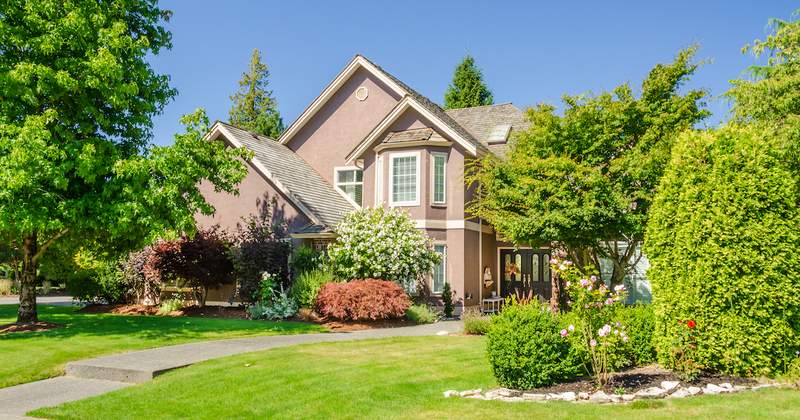
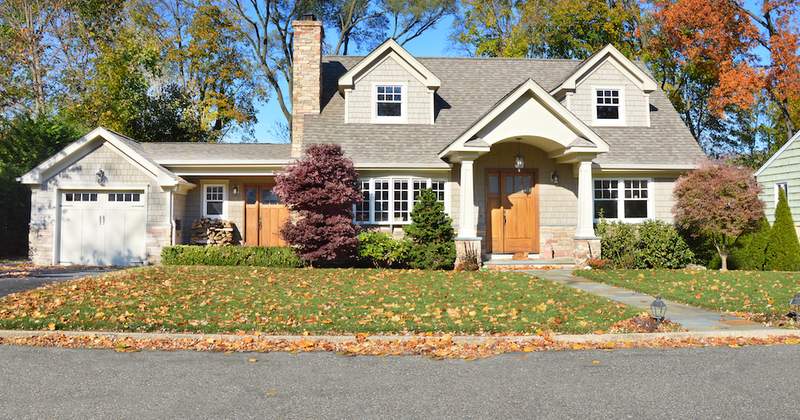

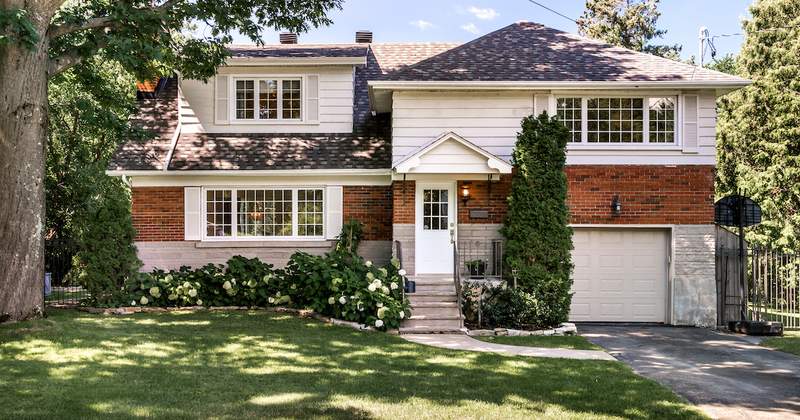

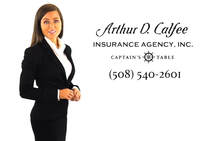



 RSS Feed
RSS Feed




